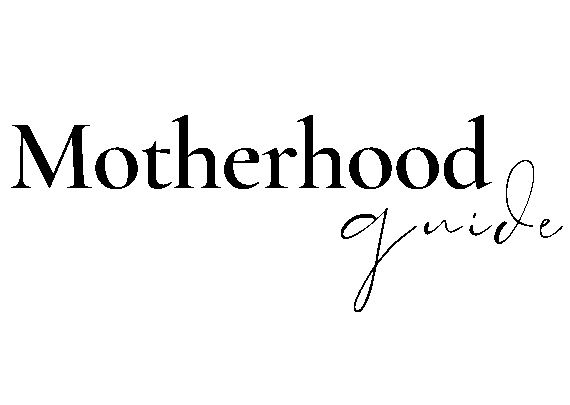When I moved from Lithuania to Malta, I struggled with professional English. I felt I had so much to offer, but the words weren’t always there to support me. It felt like my confidence lived in one world while my language lived in another. It took time to align my inner voice with my professional image.
Now, after moving again, from Malta to Greece, I face a reversed challenge. Because I don’t yet speak Greek, I simplify my English just to be understood: cutting some words off, slowing my pace, leaning on tone and rhythm. Until I learn Greek, I shall accept myself a bit smaller. Honestly? It’s a torture and the best ego trimmer.
While I’m dealing with my business impressions, my close friend – a mother of two young boys facing daily communication struggles of her own. Each day in the sandbox, she struggles with words to explain her older son why knocking down other boys is not the best way to make friends. She is a doctor, she can talk to patients and colleagues with authority, she knows Latin (!), but she can only scream inside when she sees her little one making the move again. Her polished inner lingua fights the messy words that spill out every time she loses control.
At first glance our worlds look different: boardrooms & playgrounds, yet the problem is identical, our inner monologue and our spoken words are misaligned, and frustration takes over.
The Hidden Cost of Misaligned Words
It happened many times: me sitting in one of those meetings and feeling two versions of myself competing: the confident, professional thinker inside, and the limited speaker outside. Meanwhile my friend feels the same split when she says “Stop hitting!” with a firm tone but silently doubts: Am I failing as a mother?
This split is more than uncomfortable – it’s very expensive! Neuroscience shows that when inner and outer language clash, the brain burns extra energy keeping the contradiction alive. That’s why you can walk out of a short meeting or a five-minute tantrum in the sandbox and feel completely drained.
And here’s the worst part: instead of working on aligning our inner and verbal voice, we create masks. One for work. One for family. One for public spaces. One for inside our heads and one for out.
The Inner Monologue: The First Layer of Our Language Diet
I believe parenting is one of the most linguistically demanding jobs. But once you master it, you can use it everywhere, especially in business. My very first boss: grumpy but brilliant, used to say: “No one ever really grows up. We just start working. Inside, we’re still kids.”
He was right. Influence doesn’t come from authority. It comes from knowing how to speak to the child inside everyone.
But, before we face managers at work or children at the breakfast table, we face ourselves. That first inner monologue isn’t background noise, it’s the script that sets our mood, focus, and patience for the day.
If I silently label my new day ‘another battle’ or my colleague ‘that annoying one,’ but greet everyone with a polished smile, I’ve split myself in two: the private judge/victim and the public actor. I feed them both, I think of them both, I have to root for them both. Carrying both is exhausting.
Sometimes, when we’re so lost within, we even talk to ourselves in the second or third person:
“In order to push this product, you have to market it right.”
“Zaneta will manage, she always does.”
Psychologists call this self-distancing. In small doses, it helps: referring to yourself as “you” or by name gives you space and lets you see your problem as if from the outside. But when it becomes a habit, it can indicate that we begin to live in parallel, partly as ourselves, partly as a “nothing to do with the situation” character, we watch from the outside.
In fact, early in development, children also refer to themselves by name or in the third person: “Sarah is hungry” or “Tommy wants the toy.” But this isn’t distancing, it’s developmental. At this stage, they are trying to understand the sense of “I.” Their first exposure to identity comes through how others address them: parents, teachers, and siblings constantly say their name. They borrow that external script before they can fully anchor the pronoun I to their inner voice.
What is a self-formation in children, actually is a self-distancing in adults. Adults, return to third-person speech not to form identity, but to distance themselves from it. Fun fact: quite often, it sounds very similar to how our parents spoke to us when we were little. It borrows the same external perspective we once relied on.
For children, third-person speech is a bridge to themselves; for adults, it’s a way to distance from the person who is experiencing life’s challenges to the one who is, as if, commenting & watching it unfold.
5 Practical Tips: How to Align Inner and Outer Words
Audit Your Monologue
Spend a day paying close attention to your inner voice. Notice the labels you use, are they harsh (“I’m stupid,” “I’m lazy”) or supportive (“I can figure this out”)? Ask yourself: does this voice make me feel stronger or weaker? Does it take responsibility or shift blame? Awareness is the first step to aligning your self-talk with the tone you want to carry outward. Ask how much of my life “I want” and how much of it “I have to”.
Learn the Etiquette of Disagreement
Balance doesn’t mean avoiding conflict; it means handling it with clarity and respect. Practice ways to disagree politely without betraying your real perspective. Phrases like “I see it differently” or “That’s one approach; here’s another” let you stay honest without being harsh. The goal is to narrow the gap between what you think and what you say, without breaking connection.
Practice Word Consistency
Check where/when your inner words and outer words don’t match. Think of what you are actually saying when you speak; what is your intension; what is the goal of your sentence; plan the outcome. Control your thoughts before giving them voice. Think of what makes your inner and outside language disagree and consistently improve it. Don’t be afraid of accepting changes that come with changing your inner dialogue.
Stop Gossiping, Complaining, Bragging
These three habits erode the balance between your inner and outer voice. Gossip weakens trust, complaining drains energy, and bragging inflates the ego at the cost of authenticity. If you can’t resist gossiping, turn it inward: gossip about yourself with your friends. It’s surprisingly fun, and it replaces judgment of others with playful self-awareness.
Avoid Negatives
Have you noticed how often we frame our thoughts with “no” or “not”? Phrases like “No, of course I want to” or “I’m not unhappy” sound contradicting and uncertain. The brain struggles with negatives it has to process the unwanted image first before flipping it into the opposite. It spills the tea of what your inner you actually thinks. Instead, practice saying what you do want. Swap “I don’t mind” for “I’d be glad to.” Replace “I’m not angry” with “I’m calm.”
One Voice, Many Roles
When the self we show to the world doesn’t match the self we feel inside, we live in this never ending conflict that leaves us drained and less present in our own lives.
But when the two come together, the voice inside and the one everyone hears, we gain something permanent. Whether at work or at home, in the boardroom or on the playground, we’ve chosen the life we want to live, so why not make it easier on ourselves by speaking with one voice. That one that fuels, instead of having many that drain us?











